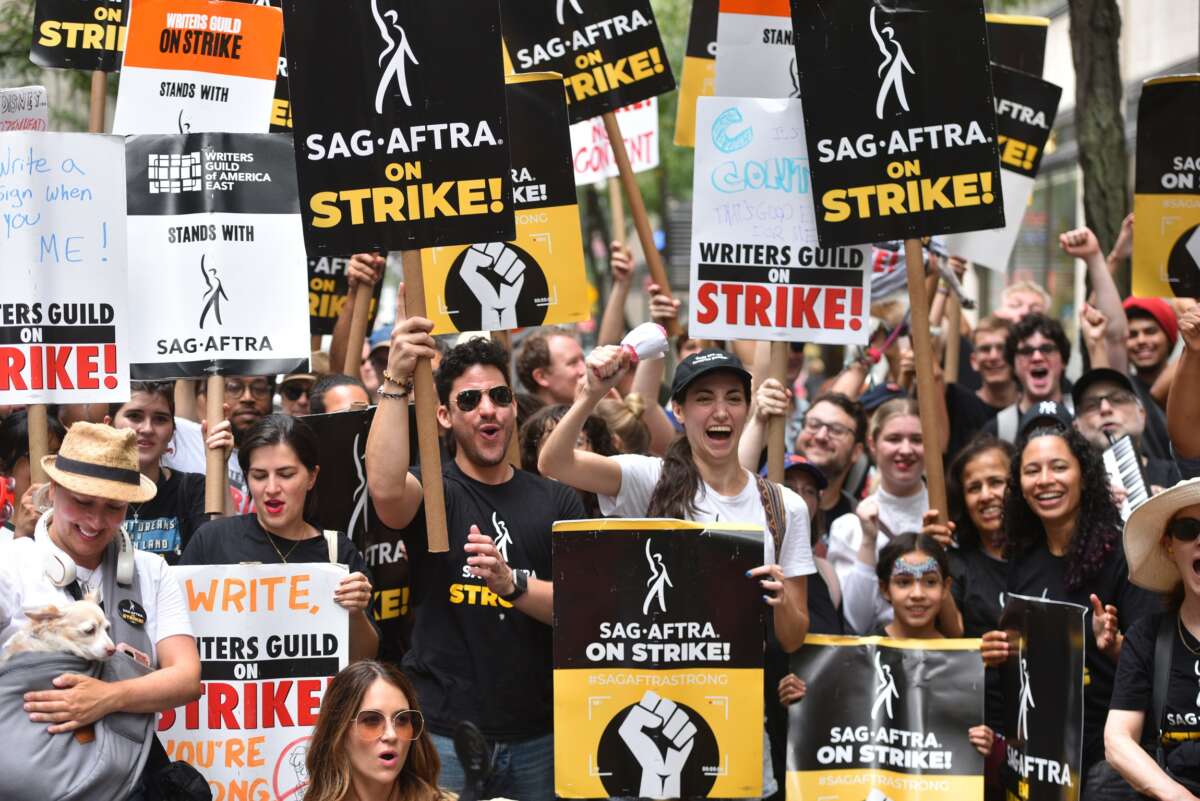The entertainment studio Warner Bros. Discovery (WBD) made a new regulatory filing on Tuesday, announcing that its expected 2023 earnings estimate will be lower than it had initially anticipated.
The lowered revenues, according to the studio, are “predominantly due to the impact of the strikes” by members of the Writers Guild of America (WGA) and the Screen Actors Guild and the American Federation of Television and Radio Artists (SAG-AFTRA), which have been jointly striking against several studios for months now calling for changes to their contracts.
In a previous conference call before this latest filing, an executive for WBD conceded that the strikes “may have implications for the timing and performance of the remainder of the film slate, as well as our ability to produce and deliver content,” which could affect profits. But the company still expected a range of earnings between $11.0 billion to $11.5 billion by the end of the year.
Now, however, those earnings are expected to be between $10.5 billion to $11.0 billion, the studio says.
The hit in earnings due to the strikes is between $300 million to as much as $500 million, WBD announced in its Tuesday filing. The company also updated its expectations of how long it expected the strikes to last — previously, WBD predicted they would end in September, but now the company says they could last through the end of the year.
The new filing may motivate the studio to act faster in forging an agreement with striking writers and actors. According to an estimate from WGA, the predicted increase in spending, based on their demands, would only be around $47 million for WBD — an amount that is around 10 percent of the revenue the studio is expecting to lose this year due to the strike.
Both writers and actors seem determined to continue the strike, which began early this summer, for as long as is needed.
“The fight for a fair contract continues, and we won’t stop until we get what’s rightfully ours,” SAG-AFTRA wrote on its official X social media account.
One of the major issues for the writers and actors alike is residuals, payments given when programs are rebroadcast or are placed again on a streaming service. Residuals for streaming are significantly lower than those given out for network television, and sometimes don’t even exist for writers and actors at all, a worrying problem as consumers shift their viewing habits toward digital platforms and away from cable or network TV. Both unions are also concerned about the use of artificial intelligence (AI) by studios.
Polling indicates that a plurality of Americans are siding with the actors and writers in the strikes, with a Los Angeles Times/Leger poll published in early August showing that 38 percent are more sympathetic toward them, versus only 7 percent saying they feel more sympathy toward the studios.
Other polls show a significant proportion of Americans are supportive of unions and strikes currently underway, particularly younger people. A GBAO poll, for example, conducted on behalf of the AFL-CIO and published late last month, found that 88 percent of people under 30 approve of labor unions, while 90 percent in that age group approve of strikes that are happening all across the country.
“We’ve never seen a number that high,” a press release from the AFL-CIO said, “which is a testament to the deep desire of young people to act collectively to demand respect and dignity on the job.”
